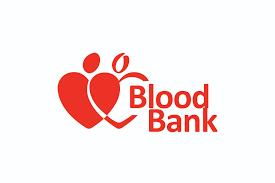Food & Beverage

Health centers (clinics, usually without inpatient beds except for normal deliveries) deliver babies, suture small lacerations, and drain small abscesses, but very few provide more comprehensive servi
As these issues are resolved, it will be important to ensure that basic surgical training is provided. The list of services that could be provided at the health center level is substantial and includes the following:
-
Treatment of simple fractures, burns, and other injuries
-
Resuscitation of major trauma patients: control of bleeding, airway maintenance, fluid replacement, and shock prevention and treatment
-
Tubectomy, intrauterine device insertion, and other contraceptive procedures
-
Early management of postpartum bleeding, eclampsia, and prolonged labor; suture of perineal lacerations; extraction of retained placentas
-
Uterine curettage for incomplete abortion
-
Circumcision
-
Removal of foreign bodies in eyes, ears, and noses
A functioning referral system with patient access to transportation will increase the efficiency and the effectiveness of these services.
The surgical burdens due to trauma and general surgical emergencies are harder to estimate, but the burdens are unquestionably high; for trauma, the estimated burden is much higher than that due to obstetrical emergencies, even though trauma has been found to be a relatively small part of surgical activities in hospitals in LMICs (Canoodt and others 2012; Mock and others 2012; Mock and others 1998). The reason for this discrepancy in met need between traumatic and obstetrical emergencies seems clear: childbirth is a predictable event; when emergencies occur, there is usually enough time to bring patients to hospitals, even distant ones. That the unmet need for emergency obstetrical care is still greater than 80 percent in most of Sub-Saharan Africa is a measure of the very serious deficiencies in the health systems in the region. That the unmet need has been less than 25 percent in Sri Lanka for more than 20 years shows that these deficiencies can be corrected, even in LMICs.
Most of the causes of the unmet need for trauma care lie outside of the hospitals. Immediate emergency assistance and prompt transfer for definitive care are often needed and rarely available in LMICs; 21 percent of serious vehicle accident victims die before reaching a hospital in the United States compared with 51 percent in Ghana (Henry and Reingold 2012; Mock and others 1998). Emergency resuscitation is usually not well organized in LMICs, neither before nor after arrival at hospitals. Furthermore, the general practitioners or NPCs available for emergencies at most first-level hospitals are not well trained for trauma care after resuscitation.
More Services
24/7 Emergency Services
Every country has some sort of system to provide surgical and other health services at various levels, with a progressive increase in the capacity to treat more complicated problems.
Intensive Care
Virtually every country has a private health sector, which is often divided into charitable facilities (usually faith based) and for-profit facilities.
Easy Appointments
More general surgical operations (including trauma, acute abdomen, and other surgical emergencies) are performed in hospitals that have specialists available, but estimates indicate that in all region
24/7 Blood Bank
One unit of whole blood is volume is the standard amount collected during a single blood donation and is crucial for effective management of blood bank inventories and medical treatments



